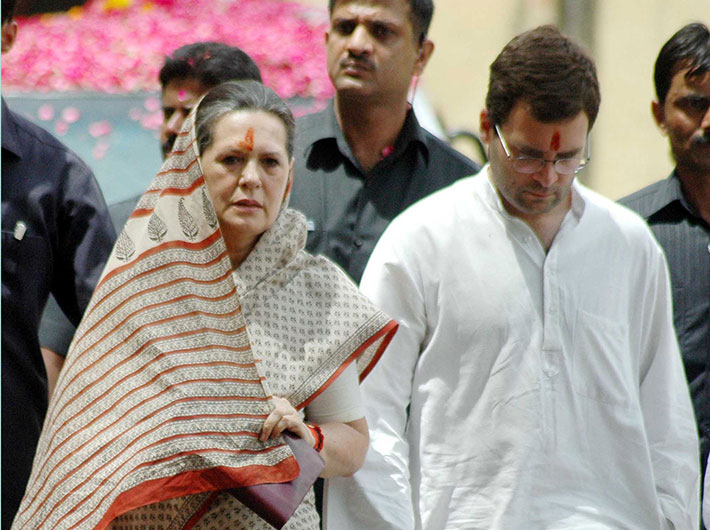If we take politics as a profession, with a structured salary, emoluments etc, we should have no problem with a politician being progeny of a politician. He/she is just another politician
Dynasty (noun): “1.1 A succession of people from the same family who play a prominent role in business, politics, or another field: ‘the Guinness dynasty’.”
Among many reasons to celebrate these general elections, we are told, is the withering away of the dynasties. The Congress could well be shorn of the Gandhis, the Lalu Prasad dynasty has been cut short, Mulayam Singh Yadav would only have family members as his Samajwadi Party comrades in parliament, the Karunanidhi family has to wait till the next Lok Sabha or the Tamil Nadu assembly polls (or whichever comes first) to have any chance of a look-in...
The dynasts, we are told, are as bad for democracy as desi ghee is for a person with heart condition. And in that, we are told, the people have given us freedom, unshackled us from a misery that had engulfed us for much of the sixty-plus years since independence.
This was a remarkable election that should be cherished for giving us a clear verdict. An outsider, in more ways than one, having won a mandate that was last won back in 1984 by, well, a ‘dynast’.
So did the voters vote out Rahul Gandhi, Karunanidhi, Lalu et al this time and raise the flag of democratic polity further? Or were the voters to be blamed for throwing us back to the feudal times by voting en masse for Rajiv Gandhi in 1984? How can we hail the voter in both cases?
Or, should we blame the voters for 1984 and hail them for 2014?
Take, for instance, the Uttar Pradesh assembly elections of 2012. Every other person who has ever lived in UP under a Mulayam Singh Yadav administration whines about the alleged administration-criminal nexus, and yet the state overwhelmingly voted for his son. Did they want a dynasty back in power? Well...
Did they vote for development? Well...
Did they want to just rid themselves of Mayawati and get in the next possible solution? Heck, yes!
So, we come back to the 16th Lok Sabha and ask a similar set of questions:
Did the voters want to get rid of a dynasty? Well...
Did they vote for development? Well...
Did they want to just rid themselves of the Manmohan Singh government and get in the next possible solution? Heck, yes!
This is in no way putting posers before the mandate for Modi. This is only to wonder aloud whether ‘dynasty’ and the much-tossed-around contention of people getting tired of the family-dom is a valid one. And, as the Congress working committee (CWC) meets to decide the party’s future – and that of the Nehru-Gandhi family as well, as reports forecast – whether the voters ‘punished the family’, as many point out.
If we take politics as a profession, and the representatives elected primarily to legislate and make laws and those in administration only to administer and govern the rest, logically there should not be a problem with dynasties or the favoured families – first, second, third or nth.
Do we have a problem visiting doctors whose father were medical practitioners as well? Logically, no.
Do we have a problem if defence personnel’s sons/daughters get into the forces to secure us? No.
Do we have a nagging doubt buying stuff manufactured by a family-owned business? Ideally, no.
Do we have a problem reading newspapers run by people whose family owns/runs those newspapers? No.
Going by the same logic – the premise being politics is a profession, with a structured salary, emoluments etc – we should have no problem with a politician being the son or daughter of a politician. He/she is just another politician.
The Americans, for instance, have had little trouble with political families like those of the Kennedys, Bush(es), or the Clintons, to take just three examples.
The reason we have a problem is, we, in India, believe politics is some sort of pious ‘tyaag’ and that politicians have to renounce a lot to be allowed to enter those hallowed chambers. The politicians, no doubt, play on those sentiments.
But cut the emotional claptrap about renunciation – or tyaag/tapasya, as netas love to tell us – to add a normal professional routine to the ‘profession’, and many misgivings can be addressed.
The average Indian voter is perhaps smarter than we think he is – perhaps she does not either vote in or vote out a dynasty. Perhaps it’s just her/his wish to see a particular party or individual family to address the common woes.

